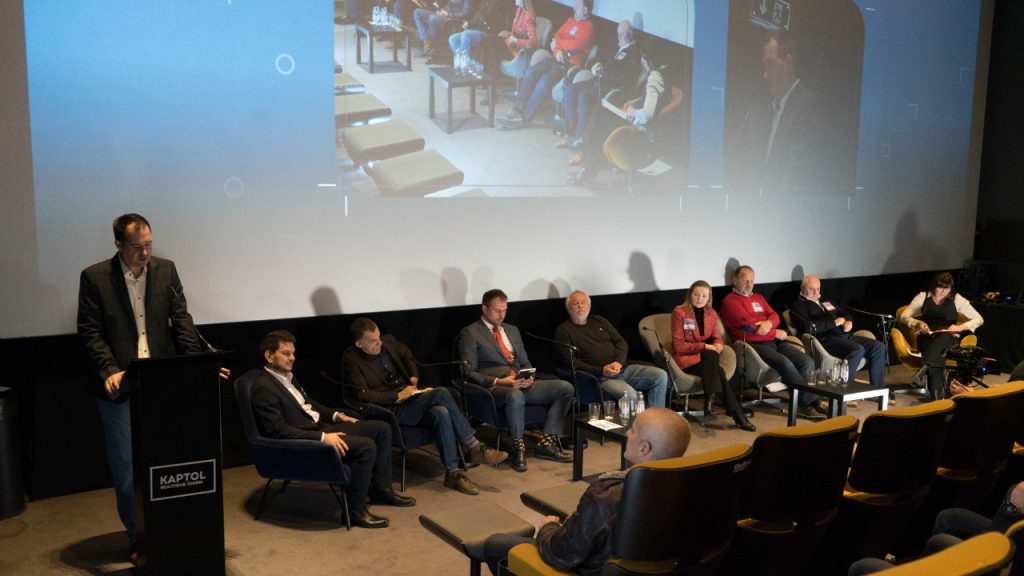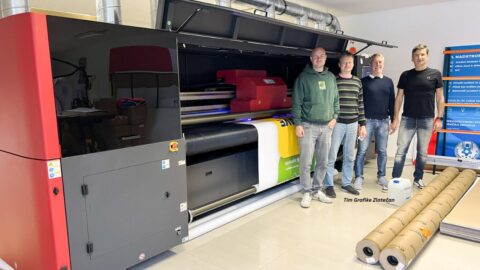The education sector creates courses that are attractive to the students, not those that our industry needs
Organized by FESPA Croatia, on Tuesday, November 22, a panel “The future of the workforce in the graphic industry” was held. At the very beginning, everyone present was greeted by Mr. Dag Knepr, president of the FESPA Croatia association. He showed his appreciation for the companies that supported the event and gave the floor to the moderator, Ms. Gordana Gelencer.
Very bad rating of the printing industry in the eyes of young people
Mr. Danijel Kersch, the owner of the Kerschoffset printing house, referred to the poor rating of the graphic industry among the younger population. He believes that one of the reasons why that happens, is the decrease in the circulation of magazines and newspapers. He believes that that is why young people compare the graphic industry with industries that are dying out.
Mr. Dubravko Dezelic, director of the School of Graphics, Design and Media Production is of a similar opinion. “We have come to the conclusion that children whose parents are closely related to the graphic arts branch are applying for the graphics majors. Digitization contributes to the fact that the public perceives graphics as an occupation in extinction”, said Mr. Dezelic.
Mr. Davor Ferdebar, owner of the company FED, saying that despite the lack of manpower, they did not stop production because of it. “We find workers by ourselves and train them. The knowledge that young people come with from graphic arts schools or colleges today does not meet the needs of the business processes of a printing house”, he commented.
Syllabus not adapted to the times in which we live
Ms. Irena Kos Kukec from the Agency for Vocational Education and Adult Education commented on the process of approval of a specific professional program. She said that the National Qualifications Framework, which contains all the values and competencies needed for a profession, is created in consultation with businessmen, the labor market, trade and professional chambers. “That’s where the problem comes in, because it’s impossible to close this entire circle with quality,” commented Mrs. Kos Kukec.
What are the possibilities of influencing the faster adaptation of study programs, explained Mr. Igor Majnaric, vice dean for business at the Faculty of Graphics, University of Zagreb.
“Our program at the university was created in the 2000s and is outdated. Right now we are in the phase of creating a new program. For some major changes, the procedure is complex, and we have to follow it. We are aware of the position we are in and that is why we started a program of courses in the last year with which we try to meet some specific requirements of the industry”, said prof. Majnaric.

What to do next?
The struggle for workers was commented by Mr. Ivan Talian, executive director of employment agency DEKRA employment d.o.o. “The amount of salary is almost the only factor that influences a candidate’s decision for a job and here, unfortunately, the printing industry often cannot compete with some other, high-income industries,” said Mr. Italian.
„Prije 15 godina znali smo kakva je demografska slika Hrvatske, a prije 10 da će Hrvatska ući u EU te da će dio radno sposobnog stanovništva napustiti zemlju. Netko je trebao reagirati. Mi poslodavci učinili smo ono što je u našoj moći. Ulagali smo u zaposlenike i automatizaciju“, rekao je. Smatra da edukacijski sektor stvara smjerove koji će biti atraktivni učenicima i studentima, a ne one potrebne našoj industriji.
How does one of the leading manufacturers of cardboard packaging in Croatia deal with this situation, the company GPI Istra d.d., said Mr. Marko Despot, company director.
“15 years ago we knew what the demographic picture of Croatia was, and 10 years ago that Croatia would enter the EU and that part of the working population would leave the country. Someone had to react. We, the employers, have done what is in our power. We invested in employees and automation,” he said. He believes that the education sector creates courses that will be attractive to pupils and students, and not those needed by our industry.
The conclusion that emerged is that we all bear part of the responsibility for the current situation. The state administration with its sluggishness, and the entrepreneurs with their lack of interest.
All in all, the workplace problem has been put on the table. Is that enough? Is it easier to build a new system or fix a sluggish and inefficient one? The years ahead will give the answer.












